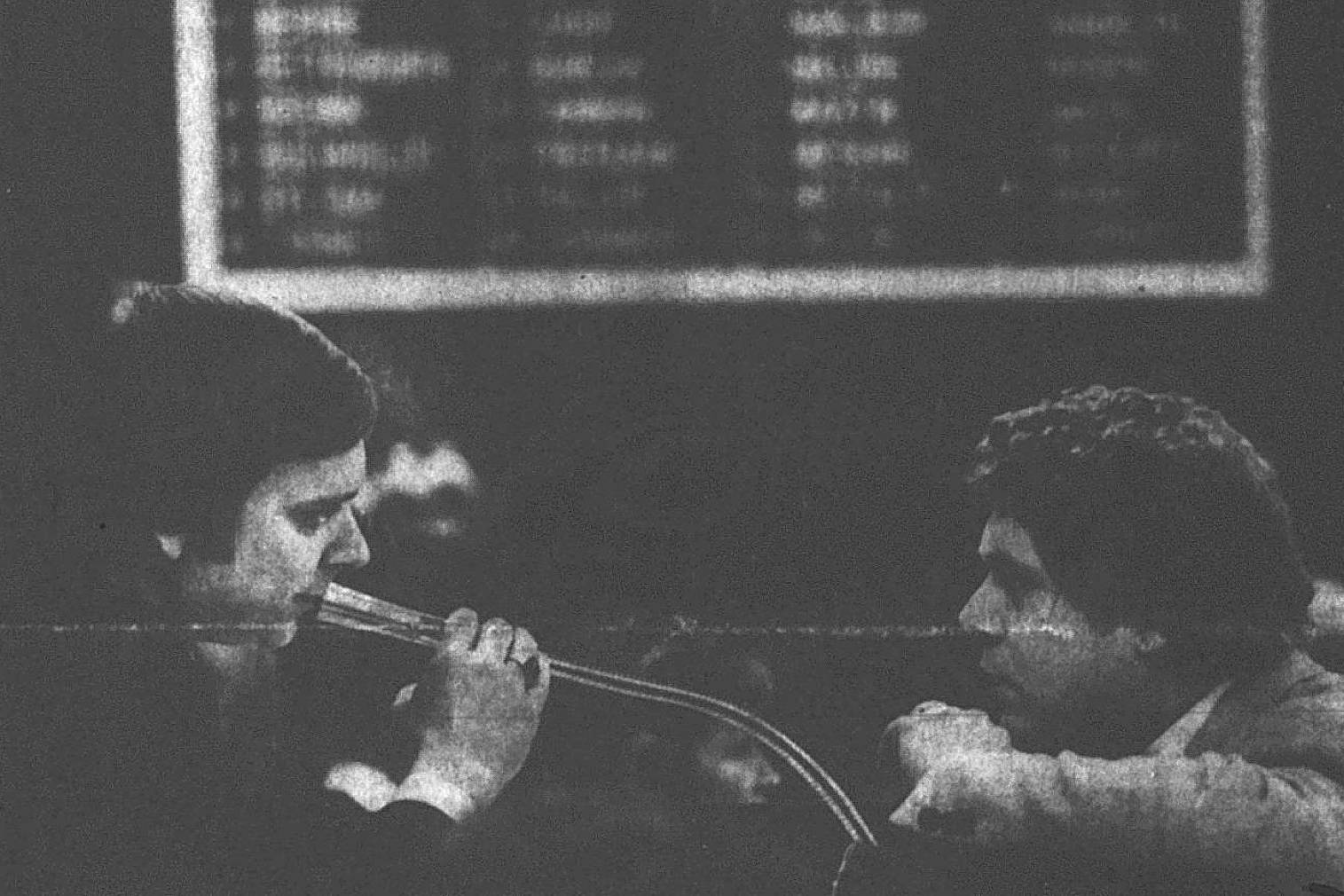Tuesday was quiet at the Alaska State Capitol, but it was a day for the record books.
This year’s Alaska House of Representatives has now gone without organizing for 23 days of session, the longest that any House has taken in the state’s history. It breaks a record set in 1981, when the House was in a markedly different situation.
In 1981, the state was not grappling with a recession or an uncertain budget situation as is the current Legislature. Jim Duncan, who was Speaker of the House for much of that 1981 session, said in a phone interview Tuesday that two main factors led to that 22-day standstill: a proposal to move the capital and the issue of oil taxes.
The Democrats, Duncan’s party, had a majority in the House, and could have formed their own majority, Duncan said, but they disagreed about who should be speaker and who should get committee assignments.
“It was never a question of whether we had enough votes,” Duncan said. “It was a question of whether we had enough votes behind a certain structure of the organization to make it.”
The gridlock continued for 22 days, and even then, the fireworks were far from over.
The session — which happened before a constitutional amendment mandated a 120-day maximum for session — dragged all the way into mid-July. Duncan said there was pressure from other legislators for him to bend on the issues of the capital move and changing the way the state charged oil taxes, but he didn’t budge. It cost him.
On the morning of June 12, 1981, 21 representatives — mostly Republicans — entered the House chambers at 9 a.m., an hour before that morning’s house session was supposed to start. When they got started, there wasn’t even a clerk present to take notes, according to the 1981 House Journal. They did have a quorum, though, and they ousted Duncan in favor of Rep. Joe Hayes, R-Anchorage. Duncan called the turn of events “traumatic,” but he said he was glad he stuck to his beliefs.
Finally, on July 15, 1981, the session ended after a grueling 165 days.
Comparing that year to this year
Duncan, who’s retired but still pays close attention to the inner-workings of the Alaska Legislature, said this year’s gridlock appears to be for a different reason.
“The issue this time seems to be, there’s great concern among majority that was in last time, the coalition with the three Republicans, about the direction that the governor wants to go with this state, and they feel strongly that they need to have the ability to offset that,” Duncan said.
Another main reason commonly cited in conversations at the Capitol is that members of the House are likely waiting for Gov. Mike Dunleavy’s full proposed budget to come out. The deadline for that is Feb. 13, and members of Dunleavy’s administration have said the budget will likely come out on that day — which would be nearly an entire month after session started Jan. 15.
House members this year have been fairly cordial with each other, but have just not come to an agreement. On Monday, Rep. David Eastman, R-Wasilla, nominated Healy Republican Rep. David Talerico, but that nomination failed 20-20. The House promptly canceled its session scheduled for Tuesday.
Dealings on the House floor in 1981 were much more contentious as the days went on, according to reports at the time. A Feb. 2, 1981 Empire article stated Rep. Mike Miller, D-Juneau and speaker pro tempore at the time, threatened to have Alaska State Troopers round up members who weren’t present for a speaker vote on the final day of the gridlock.
Rep. Russ Meekins, D-Anchorage, was quoted saying the House should “lock the doors and wait for these immature members to be rounded up.” Security officers did end up searching the building for the three legislators, according to a later Empire article, and couldn’t find them. That day, Duncan finally got the 21 votes necessary to be named speaker.
Duncan said Tuesday that in the current House’s situation, it seems the criticism has come more from outside the Capitol than within it. He said he believes it’s wise to try to get more than just a slim 21-19 majority in order for the House to work more effectively.
“I know they’re being criticized, public is saying, ‘Get in there and get the job done,’ but I think they need to communicate well and make the compromises necessary to put together some type of organization that’s in the neighborhood of 25 or so.”
He said that if he had any advice for the current representatives, he’d tell them to take their time and make sure they have an effective majority that can work well together.
“I think the public needs to be patient and if they put an organization together they can move quickly,” Duncan said. “They can address these issues.”
• Contact reporter Alex McCarthy at 523-2271 or amccarthy@juneauempire.com. Follow him on Twitter at @akmccarthy.

